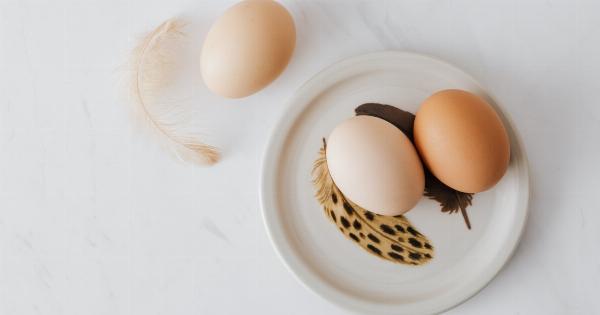High cholesterol levels can be a significant risk factor for various health conditions, including heart disease and stroke.
While medications are commonly prescribed to lower cholesterol, lifestyle changes and a combination of natural remedies can also have a game-changing effect on reducing cholesterol levels. In this article, we will explore a powerful combination of strategies that can help you improve your cholesterol profile and promote overall cardiovascular wellness.
Understanding Cholesterol
Cholesterol is a waxy substance produced by the liver and also obtained from certain foods. It plays a vital role in various bodily functions, including the production of hormones, vitamin D, and bile acids.
However, when cholesterol levels exceed the normal range, it can lead to the formation of plaque in the arteries, narrowing them and increasing the risk of cardiovascular diseases.
Dietary Changes
One of the most effective ways to lower cholesterol naturally is through dietary modifications. Certain foods have been found to promote healthier cholesterol levels and contribute to overall heart health.
Incorporate Heart-Healthy Fats
Not all fats are created equal. Some fats, such as saturated and trans fats, can raise LDL (bad) cholesterol levels. On the other hand, monounsaturated and polyunsaturated fats can help lower LDL cholesterol and increase HDL (good) cholesterol.
Include foods rich in monounsaturated and polyunsaturated fats, such as avocados, olive oil, nuts, and seeds, in your daily diet.
These heart-healthy fats can be easily substituted for less healthy options, such as butter or margarine, while enhancing the flavor of your meals.
Choose High-Fiber Foods
Eating a diet rich in soluble fiber can significantly impact cholesterol levels. Soluble fiber binds to cholesterol in the digestive system, preventing its absorption into the bloodstream.
This results in lower total cholesterol and LDL cholesterol levels.
Incorporate foods like oats, barley, legumes, fruits, and vegetables into your diet to ensure an adequate intake of soluble fiber. These foods not only help lower cholesterol but also provide essential nutrients and support overall well-being.
Consume Omega-3 Fatty Acids
Omega-3 fatty acids have been widely recognized for their heart-protective benefits. Studies have shown that regularly consuming omega-3s can help lower triglyceride levels, reduce blood pressure, and decrease the risk of heart disease.
Include fatty fish like salmon, mackerel, and sardines in your diet at least twice a week. You can also incorporate plant-based sources of omega-3s, such as flaxseeds, chia seeds, and walnuts, into your meals.
Exercise Regularly
Physical activity is an essential component of any cholesterol-lowering plan. Regular exercise not only helps raise HDL cholesterol levels but also promotes weight loss, reduces blood pressure, and improves overall cardiovascular health.
Engage in aerobic exercises like brisk walking, jogging, cycling, or swimming for at least 150 minutes per week. You can also incorporate strength training exercises two to three times a week to enhance muscle strength and overall metabolism.
Manage Stress
Chronic stress can have a detrimental impact on cholesterol levels and overall heart health. When under stress, the body releases cortisol, a hormone that increases blood cholesterol levels.
Practice stress-management techniques like deep breathing exercises, meditation, yoga, or engaging in hobbies that help you relax. Prioritizing self-care and finding healthy outlets for stress can effectively support cholesterol reduction.
Include Cholesterol-Lowering Supplements
Several natural supplements have shown promising results in reducing cholesterol levels.
However, it is important to note that supplements should be used under the guidance of a healthcare professional and not as a substitute for medications prescribed by your doctor.
Some supplements commonly used for lowering cholesterol include:.
1. Plant Sterols and Stanols
Plant sterols and stanols are naturally occurring compounds found in plants. They have a similar structure to cholesterol and can interfere with its absorption in the digestive tract.
By blocking cholesterol absorption, plant sterols and stanols can effectively lower LDL cholesterol levels.
2. Red Yeast Rice
Red yeast rice contains naturally occurring statins, compounds known to reduce cholesterol levels. When used in supplement form, red yeast rice can have a significant impact on lowering LDL cholesterol.
However, it is essential to choose high-quality supplements and consult with a healthcare professional due to potential side effects and drug interactions.
3. Garlic
Garlic has been used for its medicinal properties for centuries. Studies suggest that garlic supplementation may help reduce cholesterol levels, particularly LDL cholesterol.
Garlic can be consumed fresh, as a supplement, or as an ingredient in various dishes.
4. Coenzyme Q10
Coenzyme Q10 is an antioxidant that plays a role in energy production within cells. It has been studied for its potential to lower cholesterol and improve overall cardiovascular health.
Coenzyme Q10 supplements are available in various forms, including capsules and softgels.
5. Berberine
Berberine is a compound extracted from various plants and has been traditionally used in Chinese medicine. Research suggests that berberine can help lower cholesterol levels, especially in individuals with high cholesterol and metabolic disorders.
It is commonly available as a capsule or in powder form.
Monitor and Celebrate Your Progress
As you implement the game-changing combination of lifestyle modifications and natural remedies, it is essential to monitor your progress regularly.
Get your cholesterol levels checked regularly and celebrate each milestone achieved in your journey towards better heart health.
Remember that individual results may vary, and what works for one person may not work for another. Consult with your healthcare professional before making any significant changes to your diet, exercise routine, or when considering supplements.
Conclusion
Lowering cholesterol is a multi-faceted approach that involves making dietary changes, engaging in regular exercise, managing stress, and considering natural supplements.
The game-changing combination of these strategies can help you achieve optimal cholesterol levels and improve overall cardiovascular wellness. Prioritize your heart health and take actions today to secure a healthier future.






























